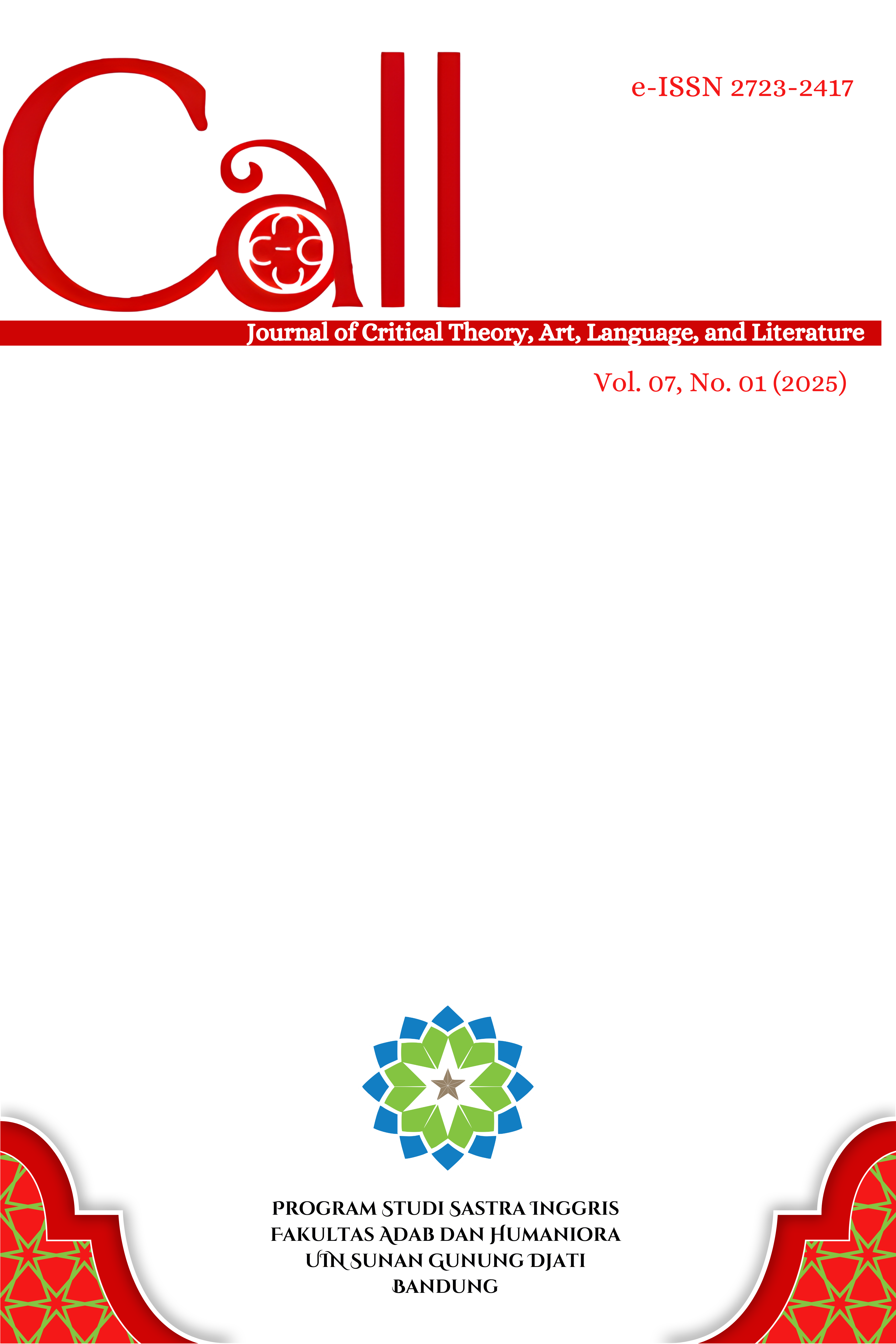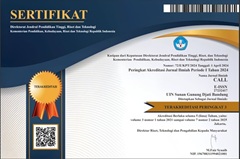ANALYSIS OF GENDER REPRESENTATION AND FEMINIST DISCOURSE IN BARBIE AND WONDER WOMAN THROUGH STUART HALL’S REPRESENTATION THEORY
DOI:
https://doi.org/10.15575/call.v7i1.44225Keywords:
Gender, Representation, Feminist, Discourse, FilmAbstract
This research aims to explore how gender is constructed and represented through feminism in the films Barbie and Wonder Woman, using Stuart Hall’s representation theory, particularly his constructionist approach. Hall’s theory emphasizes that ‘meaning’ is not just a passive reflection; it’s actively shaped by culture, language, symbols, and the interpretation of social contexts. By employing a qualitative research methodology, this study embraces a constructivist paradigm, which aligns with Hall’s (1997) view that media representations are crafted rather than simply mirroring reality. This perspective highlights how cultural and social contexts play a crucial role in shaping the meanings of media texts. The research focuses on how filmmakers encode meaning in their works and how audiences decode it. The findings reveal that this approach enables a critical engagement with the films' content, allowing for the identification of how they interact with societal ideologies. Both films promote feminist themes by showcasing strong female characters who defy social norms and expectations placed on women, highlighting the importance of critically examining gendered expectations, and illustrating how media can positively influence societal views on gender equality.
References
Banet-Weiser, S. (2018). Empowered: Popular feminism and popular misogyny. Duke University Press.
Brown, J. (2017). Wonder Woman’s ambivalent feminism. Journal of Popular Film & Television, 45(3), 132-141. https://doi.org/10.1080/01956051.2017.1339235
Connell, R. W., & Messerschmidt, J. W. (2005). Hegemonic masculinity: Rethinking the concept. Gender & Society, 19(6), 829-859. https://doi.org/10.1177/0891243205278639
Cocca, C. (2016). Superwomen: Gender, power, and representation. Bloomsbury Academic.
Crenshaw, K. (1989). Demarginalizing the intersection of race and sex: A black feminist critique of antidiscrimination doctrine, feminist theory, and antiracist politics. University of Chicago Legal Forum, 1989(1), 139-167.
Czajka, S. (2023). Feminist reimaginings: Barbie’s journey toward self-acceptance and identity. Feminist Media Studies, 19(2), 34-45.
Dargis, M. (2023, July 21). Barbie review: A riotous, candy-colored feminist fable. The New York Times. https://www.nytimes.com/2023/07/21/movies/barbie-review.html
Doane, M. A. (2017). Feminist representations in superhero cinema: Diana Prince as a model of empowerment. Journal of Gender Studies, 21(3), 112-123.
Gerwig, G. (Director). (2023). Barbie [Film]. Warner Bros.
Gill, R. (2007). Gender and the media. Polity Press.
Gill, R. (2016). Postfeminist media culture: Elements of a sensibility. European Journal of Cultural Studies, 10(2), 147–166.
https://doi.org/10.1177/1367549407075898
Hall, S. (1980). Encoding/decoding. In Centre for Contemporary Cultural Studies (Ed.), Culture, Media, Language (pp. 128–138). Routledge.
Hall, S. (1997). Representation: Cultural representations and signifying practices. London: Sage.
Hooks, B. (1996). Reel to real: Race, sex, and class at the movies. Routledge.
Jenkins, P. (2017). [Director's commentary on Wonder Woman]. Warner Bros.
Jenkins, P. (Director) (2017). Wonder Woman [Film]. Warner Bros.
Mackie, R. (2023). Barbie's break from perfection: Gendered critique through satirical utopia. Gender and Society, 34(1), 58-73.
McRobbie, A. (2009). The aftermath of feminism: Gender, culture and social change. SAGE.
Mulvey, L. (1975). Visual pleasure and narrative cinema. Screen, 16(3), 6-18. https://doi.org/10.1093/screen/16.3.6
Negra, D., & Tasker, Y. (Eds.). (2014). Gendering the Recession: Media and Culture in an Age of Austerity. Duke University Press.
Romano, A. (2023, August 4). The Barbie backlash, explained. Vox. https://www.vox.com/culture/23818635/barbie-movie-backlash-feminism-explained https://doi.org/10.2307/j.ctv1131fr9
Schmid, H., & Klimmt, C. (2011). A magically nice guy: Parasocial relationships with Harry Potter across different cultures. International Communication Gazette, 73(3), 252–269. https://doi.org/10.1177/1748048510393658
Smith, L. (2017). Gender, power, and heroism in Wonder Woman: A feminist reading of Diana’s journey. Journal of Popular Culture, 50(4), 80-92.
Sobande, F. (2020). The digital lives of black women in Britain. Palgrave Macmillan.
Tasker, Y., & Negra, D. (Eds.). (2007). Interrogating postfeminism: Gender and the politics of popular culture. Duke University Press.
Downloads
Published
Issue
Section
Citation Check
License
Copyright (c) 2025 Yoga Pratama, Roro Meifi Pitaloka

This work is licensed under a Creative Commons Attribution-ShareAlike 4.0 International License.
Authors who publish in CALL agree to the following terms:
- Authors retain copyright and grant the journal right of first publication with the work simultaneously licensed under Attribution-ShareAlike 4.0 International (CC BY-SA 4.0) License that allows others to share the work with an acknowledgment of the work's authorship and initial publication in this journal.
- Authors are able to enter into separate, additional contractual arrangements for the non-exclusive distribution of the journal's published version of the work (e.g., post it to an institutional repository or publish it in a book), with an acknowledgment of its initial publication in this journal.
- Authors are permitted and encouraged to post their work online (e.g., in institutional repositories or on their website) prior to and during the submission process, as it can lead to productive exchanges, as well as earlier and greater citation of published work (See The Effect of Open Access).




